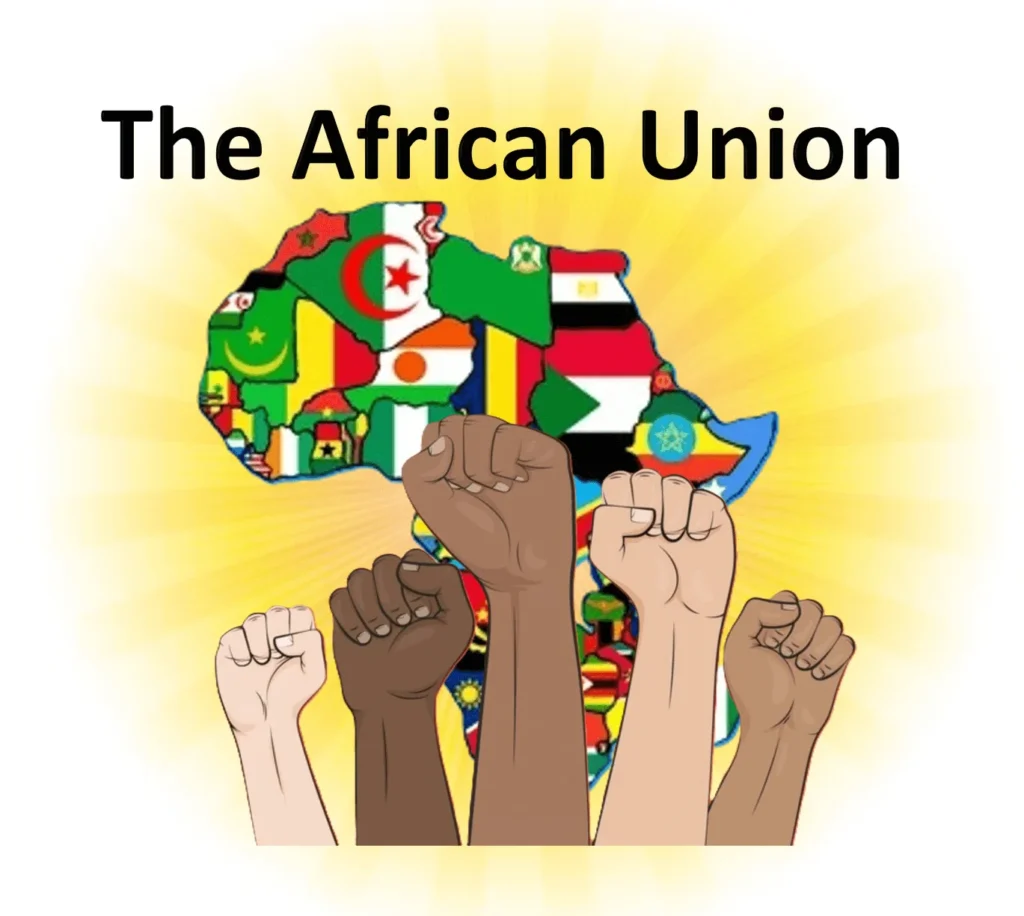
Overview of The African Union (AU)
It was on 26th May,2001 when the African Union (AU) came into existence. The purpose of this organization founded on is to promote peace, stability, and long-term development across the African continent. It was established to replace the Organization of African Unity’s (OAU) which was established in 1963.
Historical Background of the African Union
The African movement began in the 1900s as a response, to the domination that the continent was facing. The African Union’s formation was made possible by this movement. Renowned individuals including as Kwame Nkrumah, Julius Nyerere, and Jomo Kenyatta were instrumental in promoting unity and independence. The OAU emerged from their efforts, with a vision to unite nations and advance the cause of decolonization.
Objectives and Key Principles of the AU
The African Union is founded on the principles of supporting democracy, peace, security and socio-economic progress. Its main goals include strengthening unity protecting the independence of member countries upholding rights and promoting sustainable economic advancement. The organization is dedicated to respecting the sovereignty of member nations and resolving conflicts through means without interfering in their affairs.
Significance of the AU for Africa’s Progress
The African Union plays a role, in advancing Africas development by creating opportunities for collaboration, cooperation and joint decision making. It brings together 55 member countries that represent the diversity of cultures, languages and governance systems, across the continent. The AUs responsibilities go beyond security affairs to also include promoting growth, building infrastructure improving healthcare and education and addressing other vital areas of importance.
Promoting Peace and Security
Strengthening Conflict Resolution Mechanisms
African Peace and Security Architecture (APSA)
The African Peace and Security Architecture (APSA) is a framework established by the AU to prevent, manage, and resolve conflicts in Africa. It comprises various organs, including the Peace and Security Council (PSC), the African Standby Force (ASF), and the Continental Early Warning System (CEWS). These structures work in sync to enhance collective security and address conflicts effectively.
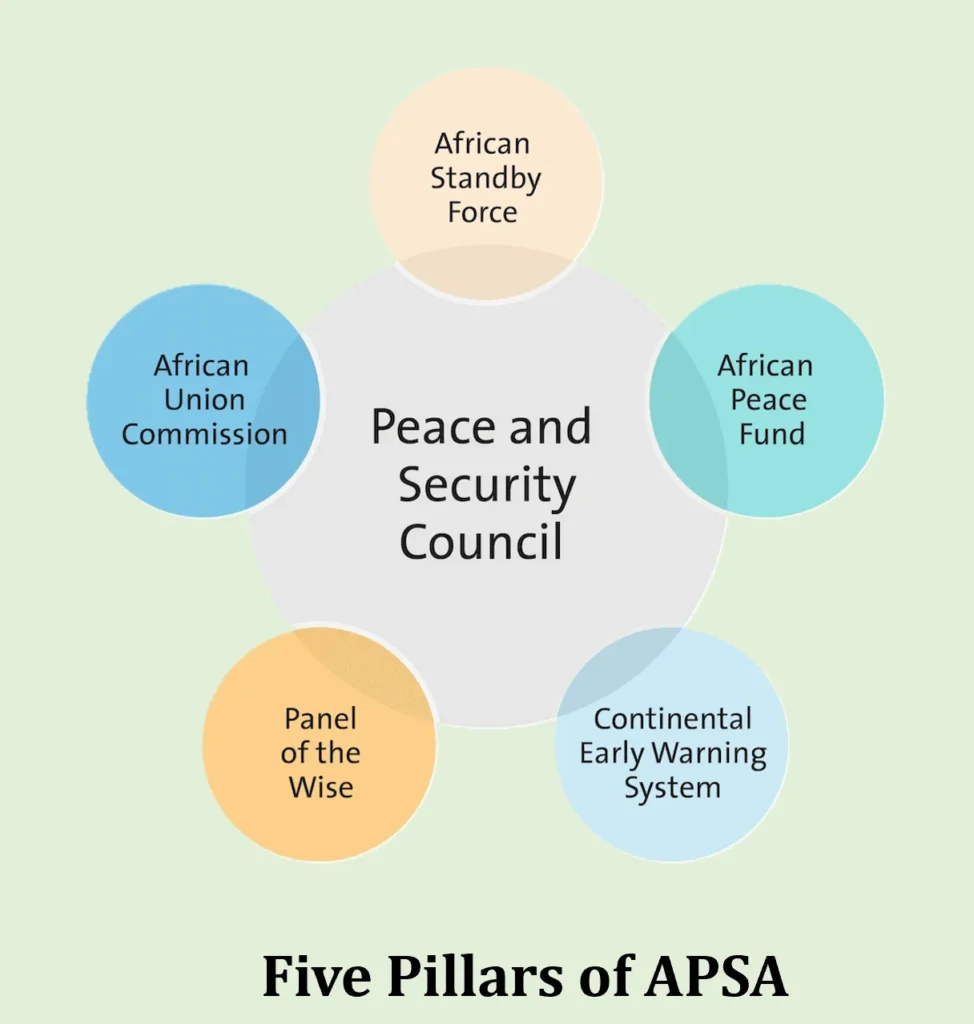
Peacekeeping Operations and Mediation Efforts
The African Union is vital for keeping peace and safety across the whole continent. One of its big jobs is to do peace missions like the one in Somalia (AMISOM). These missions aim to protect those who are at risk and make places affected by conflict stable again, along with all their other important tasks. Moreover the AU actively engages in mediation initiatives working alongside organizations and the United Nations to find resolutions, to conflicts.
Successful Case Studies of Conflict Resolution
The AU has achieved notable successes in conflict resolution. For example, the African Union (AU) played a role, in facilitating the peace accord that brought an end to the enduring conflict in Sudan ultimately leading to the establishment of an independent South Sudan. The AUs unwavering dedication to resolving conflicts in nations such as Burundi, Mali and the Central African Republic showcases its commitment, to promoting peace and stability.
Countering Terrorism and Transnational Crimes
Collaborative Initiatives for Regional Security
The AU recognizes the threat posed by terrorism and transnational crimes and undertakes collaborative initiatives to combat them. The AU collaborates closely with member states and regional organizations to devise plans, exchange information and strengthen collaboration, in tackling shared security issues. The AUs partnership with entities such as Interpol and the United Nations Office on Drugs and Crime (UNODC) plays a role, in combating terrorism and cross border criminal activities.
Promoting Intelligence Sharing and Capacity-building
The AU encourages intelligence sharing among member states to strengthen their collective capabilities in countering threats. Through training programs, workshops, and capacity-building initiatives, the AU supports the development of specialized skills and expertise in combating terrorism and transnational crimes. By fostering regional cooperation, the AU aims to dismantle criminal networks and disrupt illicit activities.
AU’s Role in Combating Piracy and Drug Trafficking
Piracy in the Gulf of Guinea and drug trafficking across Africa remain major concerns. The AU actively addresses these challenges by coordinating efforts to enhance maritime security, promote regional cooperation, and strengthen legal frameworks to combat piracy and drug trafficking. The AU works closely with member states and international partners to enforce laws, conduct joint operations, and promote information-sharing mechanisms to counter these threats effectively.
Fostering Economic Integration and Development
Foundation of African Continental Free Trade Area (AfCFTA)
Advantages and Goals of AfCFTA
The African Continental Free Trade Area (AfCFTA) is an initiative, with the goal of establishing the free trade area in the world. Its objective is to promote African trade attract foreign investments fuel economic growth and encourage sustainable development by eliminating trade barriers, like tariffs and non tariff obstacles. This initiative offers nations an opportunity to strengthen integration and reap the advantages of a broader market.
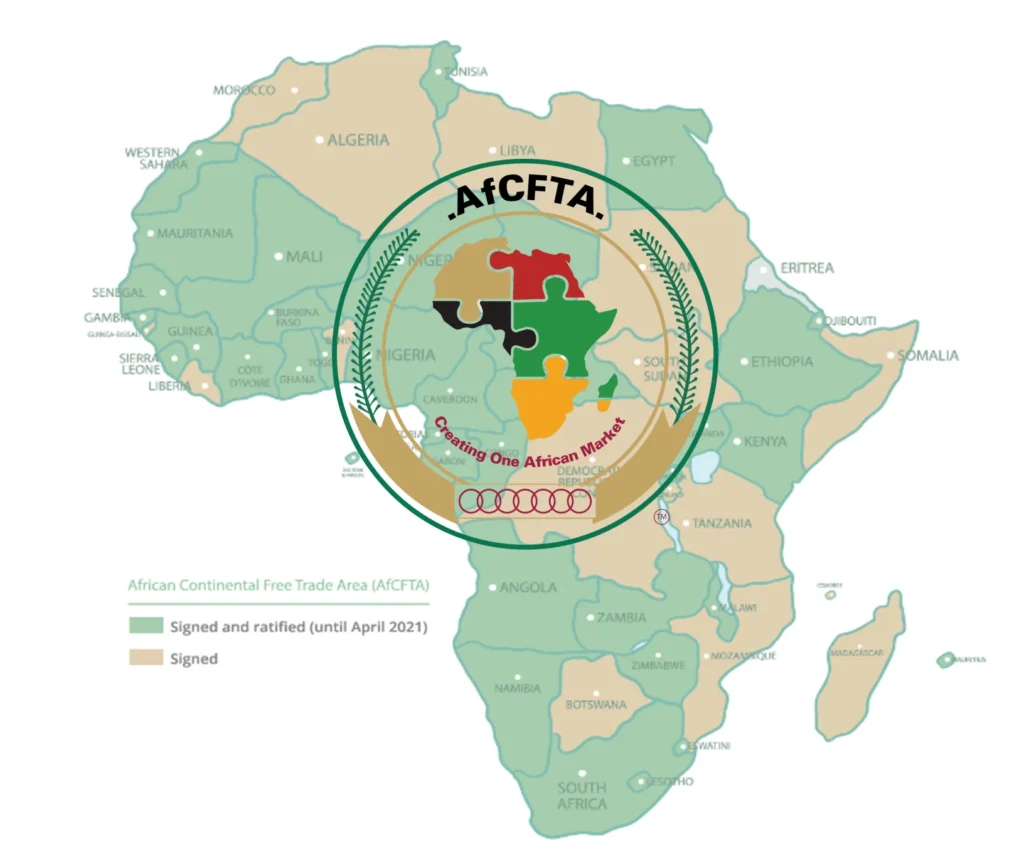
Progress and Challenges in Implementation
Since the establishment of the African Union, the AfCFTA has made significant progress. The majority of countries have ratified the agreement demonstrating a dedication to achieving economic integration. However, there are still obstacles to overcome in terms of aligning regulations addressing infrastructure deficiencies and developing the capacity, for implementation of the agreement. The AU, along with its member states, is actively working towards overcoming these challenges to ensure the successful implementation of AfCFTA.
Potential Impact on Intra-African Trade and Investment
The AfCFTA has the potential to revolutionize intra-African trade and attract investment. By providing a predictable and transparent trading environment, it creates opportunities for businesses to expand their operations within the continent. Increased trade among African countries can lead to job creation, technology transfer, and the development of value chains, ultimately contributing to poverty reduction and economic empowerment.
Infrastructure Development and Connectivity
Boosting Transportation and Energy Networks
The AU recognizes the importance of robust infrastructure in driving economic development. It spearheads initiatives to enhance transportation networks, improve connectivity, and develop efficient energy systems. Projects such as the Trans-African Highway Network and the Program for Infrastructure Development in Africa (PIDA) are aimed at creating seamless cross-border connectivity and fostering regional integration.
AU Projects for Cross-Border Infrastructure
To address infrastructure challenges, the AU implements projects that prioritize cross-border infrastructure development. These initiatives encompass the development of highways, rail networks, harbors and energy facilities that enable the transportation of commodities, services and individuals, across boundaries. With the objective of enhancing interconnectedness the African Union strives to trade expenses encourage collaboration, among neighboring regions and unleash Africas capabilities.
Addressing Barriers to Regional Integration
The AU actively works towards addressing barriers to regional integration, including bureaucratic hurdles, trade restrictions, and inadequate infrastructure. It advocates for the harmonization of trade policies and the development of regional value chains to promote economic integration. Through partnerships with regional economic communities and international organizations, the AU strives to overcome these barriers and create an enabling environment for sustainable development.
Enhancing Governance and Democracy
Strengthening Democratic Institutions
AU’s Role in Promoting Good Governance
The African Union (AU) places importance on the promotion of governance and the strengthening of democratic institutions, throughout the continent. It actively assists member states in upholding principles maintaining the rule of law and respecting rights. The AUs African Charter on Democracy, Elections and Governance serves as a guiding framework, for fostering practices and ensuring governments are held accountable.
Monitoring and Supporting Electoral Processes
To ensure free, fair, and transparent elections, the AU undertakes various activities, including election observation missions, technical support, and capacity-building initiatives. By monitoring electoral processes and providing recommendations, the AU contributes to the legitimacy and credibility of elections. It assists member states in strengthening electoral frameworks and promoting inclusive political participation.
Addressing Corruption and Rule of Law
Corruption poses a significant challenge to governance and development in Africa. The African Union (AU) works to stop corruption by promoting honesty, fairness, and measures to fight corruption. It also helps countries follow the rules and supports the creation of systems and organizations to prevent and fight corruption. One such effort is the African Union Convention, on Preventing and Combating Corruption through which the AU aims to cultivate a culture of integrity and accountability.
Human Rights and Gender Equality
AU Initiatives for Human Rights Protection
The African Union (AU) is dedicated to safeguarding rights and fostering an environment for people to flourish. It has established the African Charter, on Human and Peoples Rights which outlines the rights and freedoms that member nations should uphold. The AU actively monitors instances of human rights violations extends support to human rights institutions and advocates for the protection of groups such as refugees and internally displaced individuals.
Empowering Women and Achieving Gender Equality
Promoting gender equality is a priority for the AU. It strives to empower women eliminate discrimination and promote gender mainstreaming across all aspects of development. Through initiatives like the AUs Framework for Gender Equality and Womens Empowerment the organization works towards achieving representation of women in leadership roles increasing womens access, to opportunities and combating instances of gender based violence.
Challenges and Progress in Ensuring Human Rights
Although there has been some improvement, in advancing and safeguarding rights in Africa there are still challenges. Problems like conflicts, discrimination, poverty and inadequate governance systems are obstacles that hinder the achievement of rights. The African Union (AU) recognizes these challenges. Is working harder to tackle them. Collaborative partnerships with civil society organizations and international actors play a role in promoting rights, across the continent.
Collaboration in Health and Education
Improving Healthcare Systems
Combatting Infectious Diseases and Epidemics
Healthcare systems, in Africa encounter obstacles, including scarcity of resources and the burden caused by diseases. The African Union (AU) plays a part in fighting against ailments, like HIV/AIDS, malaria and Ebola through collaboration and coordination. It mobilizes resources promotes the exchange of knowledge and backs initiatives aimed at bolstering healthcare infrastructure, disease surveillance systems and availability of medications.
Strengthening Healthcare Infrastructure
The AU recognizes the importance of resilient healthcare systems in achieving universal health coverage. It backs initiatives to strengthen healthcare infrastructure, which involves the establishment and outfitting of hospitals, clinics and laboratories. By investing in healthcare infrastructure the AU strives to enhance access, to high quality healthcare services and improve the health and well being of populations.
Encouraging Research and Development in Health
In order to address the health issues the continent faces, the AU also promotes health-related research and development. It backs programs that foster creativity, information exchange, and capacity growth in industries including public health, medical technology, and pharmaceuticals. The Africa CDC (Centers for Disease Control and Prevention) operated by the AU plays a role, in coordinating research efforts and responding effectively to health emergencies.
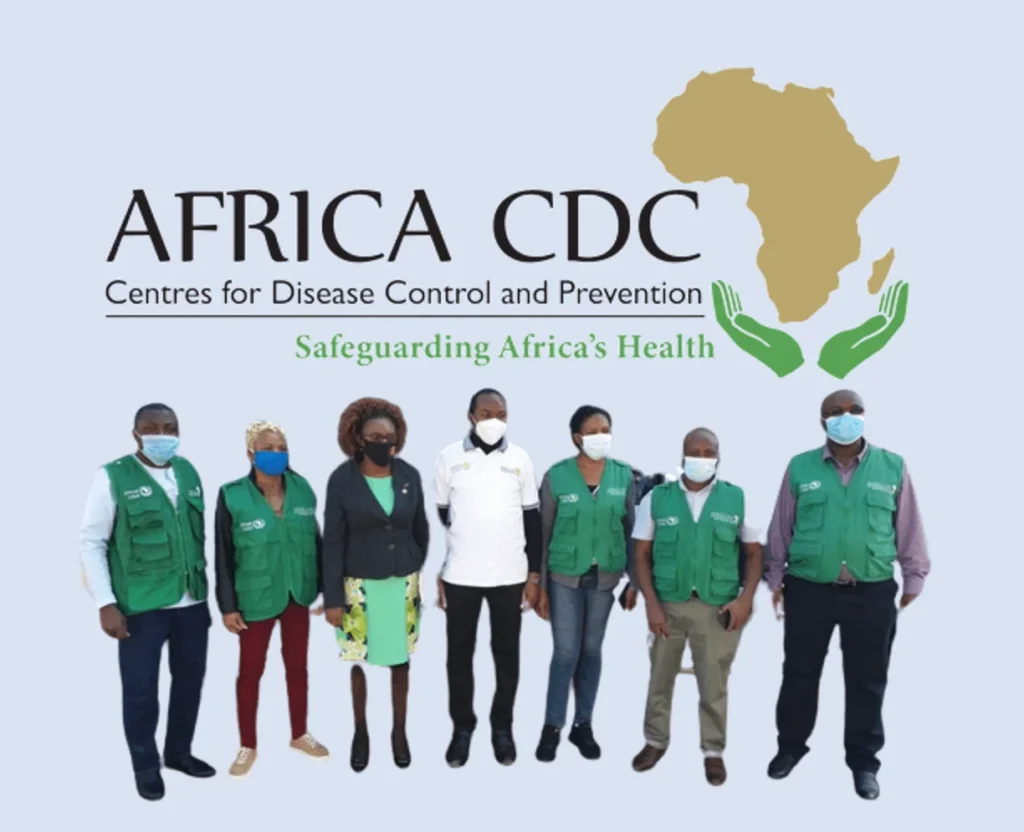
Advancing Quality Education
AU’s Efforts for Accessible and Inclusive Education
Education is viewed as a transformative tool for socioeconomic development. The AU works towards ensuring accessible and inclusive education for all Africans. It advocates for policies that promote equitable access to education, eradicate illiteracy, and enhance educational infrastructure. Through initiatives like the Continental Education Strategy for Africa (CESA), the AU strives to improve educational outcomes and reduce disparities across the continent.
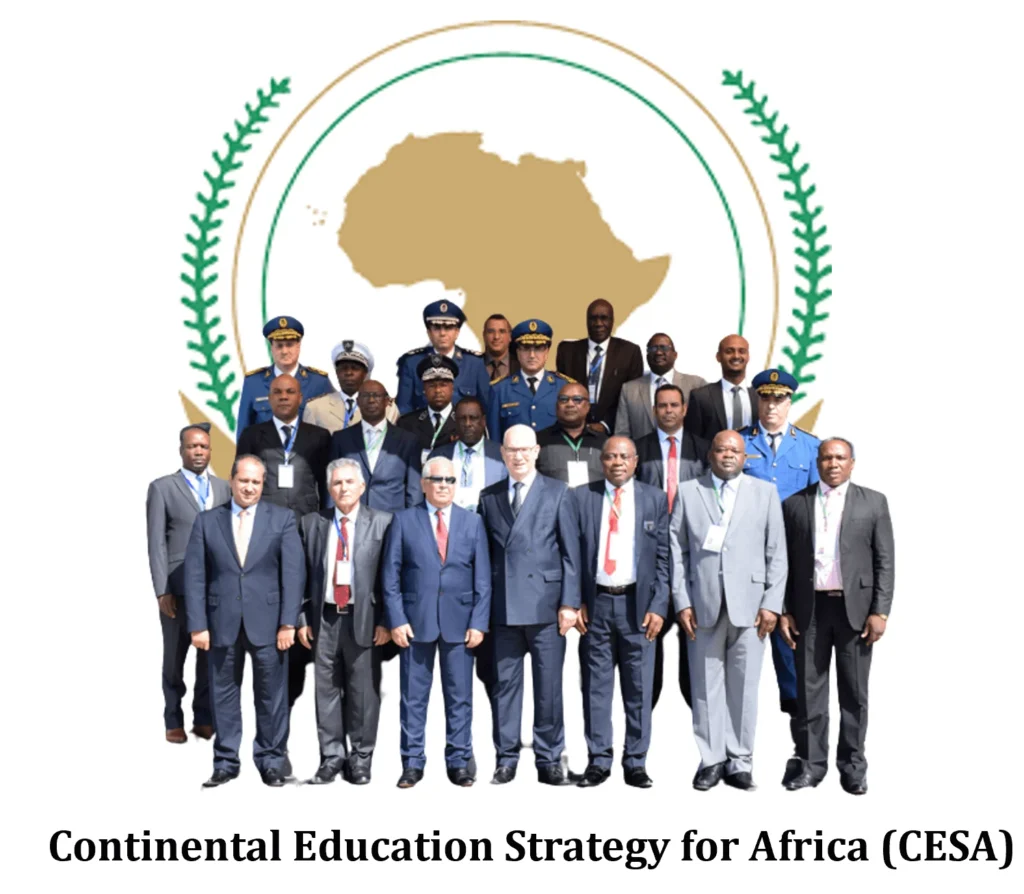
Promoting Technical and Vocational Training
The African Union (AU) acknowledges the significance of vocational training, in preparing individuals with the skills for the labor market. It actively promotes the establishment of systems for vocational education and training (TVET) that’re in line, with industry requirements and encourage entrepreneurial endeavors. By promoting skills development, the AU seeks to enhance economic productivity, reduce unemployment, and support sustainable development.
Addressing Challenges in the Education Sector
Education systems, in Africa encounter a range of difficulties, such, as restricted availability of high quality education, insufficient infrastructure and a scarcity of trained educators. The African Union (AU) works together with member nations, regional organizations and development partners to tackle these obstacles. Efforts focus on improving education financing, strengthening teacher training, and implementing innovative approaches to enhance the quality of education on the continent.
Conclusion
Recapitulation of AU’s Achievements and Influence
The African Union has made significant achievements in driving collaboration for sustainable growth and development in Africa. It has played a crucial role in promoting peace and security, fostering economic integration, enhancing governance and democracy, and collaboration in health and education. Through its various initiatives and partnerships, the AU has undoubtedly influenced positive change across the continent.
Key Challenges on the Path to Continental Development
While the AU has made notable progress, it faces key challenges on the path to continental development. These challenges include inadequate financial resources, bureaucratic barriers, internal conflicts, and disparities in development among member states. Addressing these challenges requires continued commitment, increased cooperation, and innovative approaches to overcome the obstacles hindering Africa’s progress.
Future Outlook and Role of the AU
The African Union’s future outlook is promising, given its determination to realize the aspirations of Agenda 2063 – a continental vision for Africa’s transformation. The African Union (AU) is committed to enhancing its role, in promoting cooperation among member countries mobilizing resources, for development and fostering partnerships at global levels. The ultimate objective is to create a prosperous and interconnected Africa with the AU playing a part in realizing this vision.
“The African Union stands as a beacon of hope for Africa, driving collaboration and progress on diverse fronts. From promoting peace and security to fostering economic integration, enhancing governance and democracy, and advancing health and education, the AU’s impact is profound. Challenges remain, but with determined efforts and collective action, Africa’s future shines brighter than ever.”
Frequently asked Questions (FAQs)
What is the main objective of the African Union?
The primary aim of the African Union is to foster collaboration, among nations in addressing shared challenges. It strives to unite the continent promote peace and enhance the quality of life for all Africans.
How does the African Union contribute to resolving conflicts, in Africa?
The AU helps settle disputes in Africa through peacekeeping missions, negotiations, and diplomatic efforts. By mediating conflicts and deploying peacekeepers, it strives to bring stability and peaceful solutions to problems within its member nations.
What are the potential benefits of the African Continental Free Trade Area?
The African Continental Free Trade Area, or AFCFTA, offers exciting advantages. It boosts trade between African countries, leading to economic growth, more job opportunities, and higher living standards. Removing trade barriers encourages prosperity across the continent.
How does the AU promote good governance and democracy?
The AU upholds democratic principles and good governance, through the monitoring of elections enhancement of institutions and promotion of transparency and accountability in government. It prioritizes the rule of law, human rights and the involvement of citizens, in decision making processes.
What steps has the AU taken to enhance healthcare and education in Africa?
The AU has taken significant actions to improve healthcare and education in Africa. It has set up initiatives like the African Medicines Agency to enhance access to quality healthcare. Additionally, the AU supports education projects, ensuring that children and marginalized populations have access to quality education, ultimately leading to a healthier and more educated continent.
